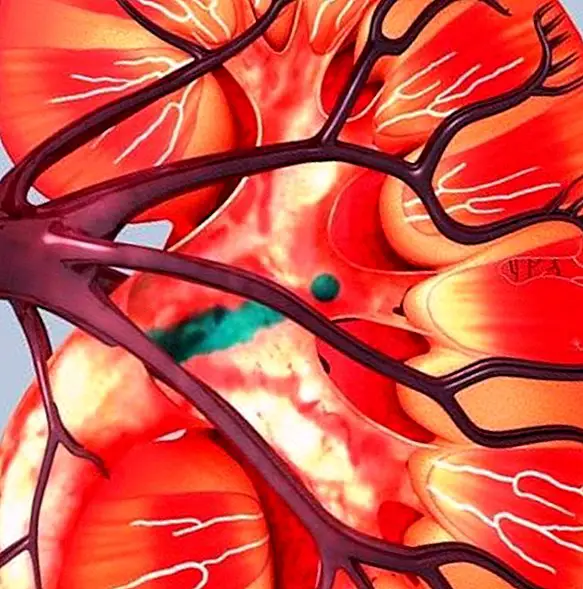Childhood obesity: what it is, causes and what parents should do
The statistics that the World Health Organization (WHO) shows about obesity are very alarming. Since 1980, obesity has doubled around the world and specifically in 2014, 41 million children under 5 were overweight or obese.
The WHO categorizes obesity as a global epidemic and defines it as: "an abnormal or excessive accumulation of fat that can be detrimental to health and that affects all ages and socioeconomic groups. In Spain almost 30% of the adult population suffers from obesity. Childhood obesity is therefore the one that affects children. 
The Body Mass Index (BMI) is a standard that calculates the ideal scale of a person according to their weight, height and height. In the case of children, the growth variable is also contemplated.
Many studies have affirmed that 80% of children who suffer from obesity or overweight continue to maintain it from adults with the consequences that this entails.
Causes of childhood obesity
We can reduce the causes of childhood obesity in three major blocks: genetic causes, environmental causes and psychological causes.
While there are several causes of childhood obesity and overweight, which we will study in a summarized way in this post, there is a fundamental one that becomes one of the main ones: child sedentary.
As we have already tried at some other time, maintaining a regular physical activity and encourage it in the youngest is vital both for the growth and for the development of the same, since this will in turn help to burn the excessive caloric content that consume when they eat foods high in fat or sugar (hamburgers and pizzas, pastries, sweets ...).
Today it is very normal for the little ones to spend hours watching television daily, playing computer games, chatting with their friends ... And parents do not realize what these activities can have on the health of the most little ones.
There are also causes of a genetic, social, metabolic or physiological nature that can encourage our child to be obese. In these cases, the most advisable, in addition to encouraging a much healthier lifestyle and a balanced diet, is to consult with an expert who will personally advise and study each case individually.
Genetic causes
Obesity can be inherited from parents to children, so it is also the job of adults to avoid this disease. When one of the two parents is obese, the probability that their son is also obese is 4 times more than the norm, and in the case that they are both the figure rises to 8 times more. However, this cause is not one of the most determining.
Environmental causes
In the first place, the habits that are previously taken home, will be those that the child acquires by imitation. If we tend to eat fatty foods or not recommended with a high frequency or if we maintain sedentary lives, when we are raising our son will tend to approach less healthy products and passive activities such as watching TV or playing video games. 
Psychological causes
The food not only for children, but also for adults sometimes exerts a compensatory pleasure of other problems such as: stress, insecurity or simple boredom. In this way we eat with no desire and for the simple fact of developing an activity to forget others. The foods that are usually used in these occasions are none other than sweets, trinkets, fries, etc.
What happens if my child is obese?
Already the overweight and obesity make our children more likely to have diseases such as diabetes, hypercholesterolemia and high blood pressure among others. As you see, the diseases that we are associating obesity are not at all simple, it is more, they can accompany them the rest of their life.
In addition to physical consequences, the psychological consequences also make their appearance. Children are at ages when they need the approval of others and the reaffirmation of their own personality, as this can sometimes be undermined by excess weight. Not voluntarily and with the purpose of hurting your child can be signaled what will cause a low self-esteem by not being satisfied with their appearance and lead to child depression.
And remember, at these ages the only one that can change this situation is you. You are the one who decides the food that goes into the house and the daily activity to do, is in your hands.
Remediating and preventing childhood obesity
Okay, my son is obese ... And now? What I do! Do not worry, at these ages the body responds and adapts more easily to changes in diet and physical exercise. 
The problem of our child gaining weight is reduced to a very specific aspect (except for those types of obesity that are related to drugs or disorders in the metabolism): our child INGES MORE CALORIES OF WHAT HE BURNS. Thats the secret.
Therefore, knowing the root of the problem and we can put issue. We must balance what our son eats with what he spends. We strongly recommend going to a professional who will adapt both aspects in a personalized way to your child.
Some simple tips:
- Fill your fridge with foods that we consider healthy such as vegetables and fruits.
- Replace the snacks and trinkets with some of their own making, such as natural fruit ice cream.
- Do not ban food because it creates anxiety in the child, but it does regulate the amount of food not recommended ingested.
- Eat with your child and serve as an example.
- Avoid fast food restaurants and leave them for occasional occasions and never associate them with prizes.
- Take it to parks and outdoor activities.
- Help him choose an activity or active sport that motivates him and encourage him to participate.
And remember: encouraging a balanced diet rich in fruits and vegetables, and a healthy lifestyle where there is regular physical activity (if possible daily) will help our children do not suffer from overweight and obesity. A problem that, by the way, may not have a momentary impact on your health, but over time can become a serious problem.
These small changes you do not have to do them suddenly because it will create a rejection in the child, but if you are approaching little by little to this lifestyle all family members will be benefited and help your child to lose those kilos of plus.
Bibliography:
- Güngör NK. Overweight and obesity in children and adolescents. J Clin Res Pediatr Endocrinol. 2014 Sep; 6 (3): 129-43. doi: 10.4274 / Jpep.1471. Available at: //cms.galenos.com.tr/Uploads/Article_1187/129-143.pdf [PDF]
- Bleich SN, Vercammen KA, Zatz LY, Frelier JM, Ebbeling CB, Peeters A. Interventions to prevent global childhood overweight and obesity: a systematic review. Lancet Diabetes Endocrinol. 2018 Apr; 6 (4): 332-346. doi: 10.1016 / S2213-8587 (17) 30358-3. Available at: //linkinghub.elsevier.com/retrieve/pii/S2213858717303583
- Bonsergent E, Agrinier N, Thilly N, Tessier S, Legrand K, Lecomte E, Aptel E, Hercberg S, Collin JF, Briançon S; PRALIMAP Trial Group. Overweight and obesity prevention for adolescents: a cluster randomized controlled trial in a school setting. Am J Prev Med. 2013 Jan; 44 (1): 30-9. doi: 10.1016 / j.amepre.2012.09.055. Available at: //www.ajpmonline.org/article/S0749-3797(12)00733-7/fulltext
- Pizzi MA. Promoting Health, Well-Being, and Quality of Life for Children Who Are Overweight or Obese and Their Families. Am J Occup Ther. 2016 Sep-Oct; 70 (5): 7005170010p1-6. doi: 10.5014 / ajot.2016.705001. Available at: //ajot.aota.org/article.aspx?articleid=2540522


